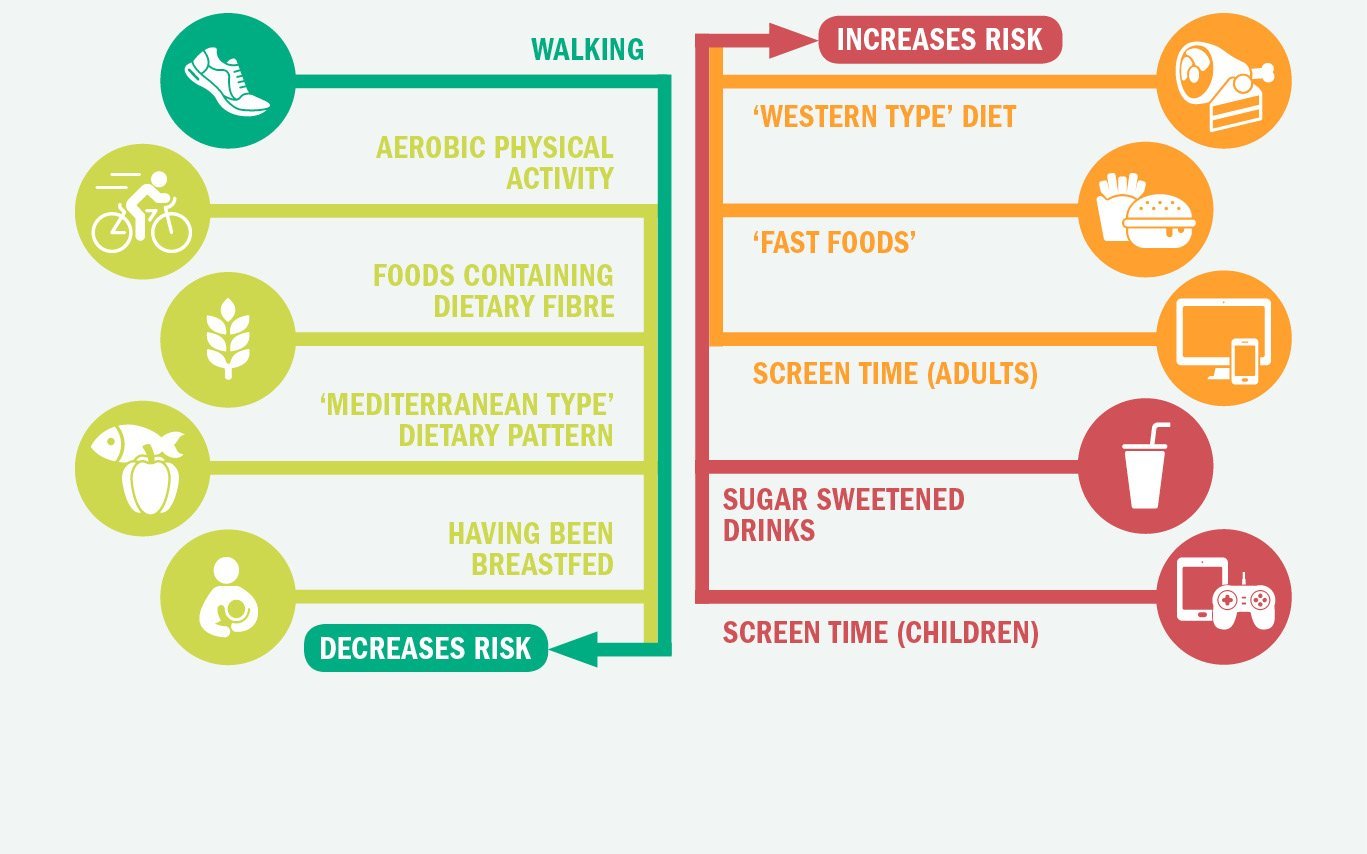Today we’ve published the full findings from our report Diet, nutrition and physical activity: Energy balance and body fatness – The determinants of weight gain, overweight and obesity. Its evidence and conclusions were used to inform our updated Cancer Prevention Recommendations. Emily Almond from our Science team explores one of the key findings: how screen time can affect weight gain, overweight and obesity.
Why did we investigate weight gain, overweight and obesity?
Our work centrally looks at incidence of, and survival from, cancer as the main outcome. However, it is also important for us to explore the factors that increase risk of weight gain, overweight and obesity. Overweight and obesity are causally linked to 12 cancers, so the drivers of weight gain, overweight and obesity are also indirectly the drivers of cancer risk.
Body weight is influenced by numerous, interdependent factors ranging from genetics to broader environmental, economic and social factors. Our report focuses on the diet and physical activity determinants. Understanding how these modifiable factors influence weight gain, overweight and obesity is crucial for addressing this, from a personal level right through to informing policy.
Screen time – the evidence
Any time spent watching television or using electronic devices such as computers, tablets and mobile phones is classified as screen time – including at school or work.
Our report found strong evidence that greater screen time is a cause of weight gain, overweight and obesity in adults. However, for the first time WCRF’s expert panel found sufficient strong evidence for a separate conclusion: that greater screen time is a convincing cause of weight gain, overweight and obesity in children. This is of particular importance – children living with overweight and obesity are more likely to continue to do so in adulthood, and we know that overweight and obesity in adulthood increases cancer risk.
What is energy balance?
Balancing the amount of energy (calories) we put into our body versus the amount we use up is known as energy balance. This is determined by the combination of food and drinks consumed, requirements for normal bodily functions and the level of activity (or inactivity). Consuming more energy than we use up, over the long term, leads to weight gain.
How does screen time lead to weight gain?
When using screens, we are typically inactive and use up little energy. This displaces time that could be spent being more physically active. Being inactive can disrupt our normal appetite signalling and lead to passively eating more than is needed. Screen time can also increase exposure to marketing of foods and drinks that promote weight gain. Screens themselves don’t contribute to weight gain, but increased screen time is a marker of an overall inactive lifestyle.
Screen time is increasing globally
Recent rapid economic development, changes to agriculture and globalisation have impacted the foods and drinks we consume – known as the nutrition transition. Concurrently, there have been declining numbers of manual jobs, changes to transport, decreasing levels of physical activity and an increase in sedentary habits (including screen time). Advances in technology have also increased time spent using screens, both at work and during leisure time.
Comprehensive policy action needed
Body weight is not determined by a single factor, but influenced by a number of factors, most of which are beyond our personal control. These environmental, economic and social factors affect how available, affordable and acceptable healthy diets and physical activity are, relative to unhealthy diets and physical inactivity.
Policy frameworks can help outline what action is needed to create health-enhancing environments. Building on our unique NOURISHING framework and policy database, which outlines a comprehensive package of policies for governments to promote healthy diets, we developed our Driving Action framework – it outlines where action is needed to promote healthy diets, physical activity and breastfeeding, and reduce alcohol consumption.
With the number of people living with overweight and obesity worldwide projected to rise if trends remain unchanged, concerted action is needed – now more than ever – to help reverse these trends.
> Discover more about the determinants of weight gain, overweight and obesity in the full report
> Explore the NOURISHING database and the Driving Action framework
